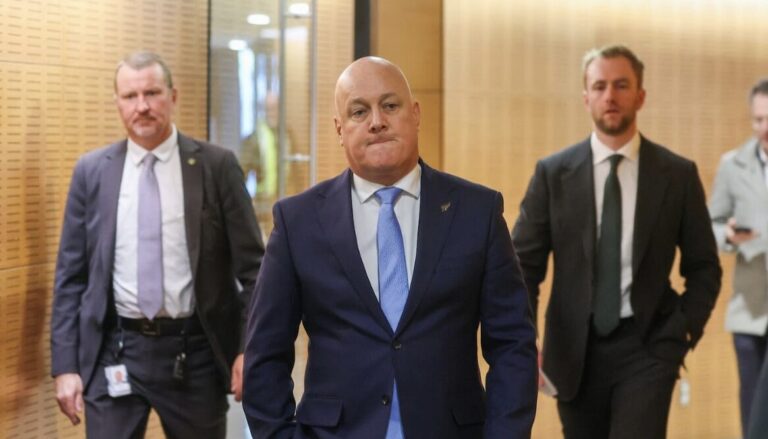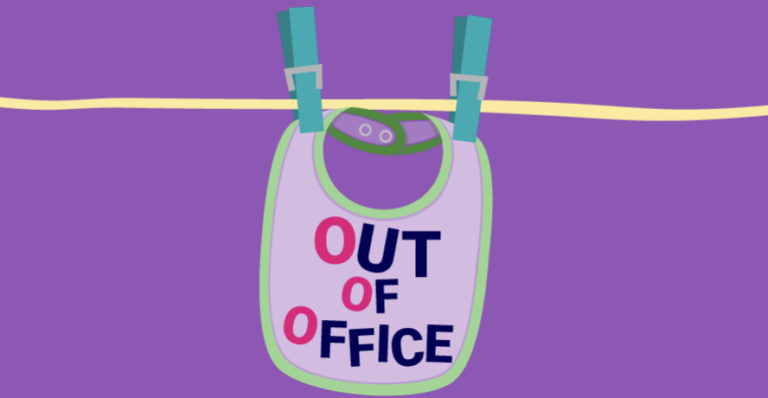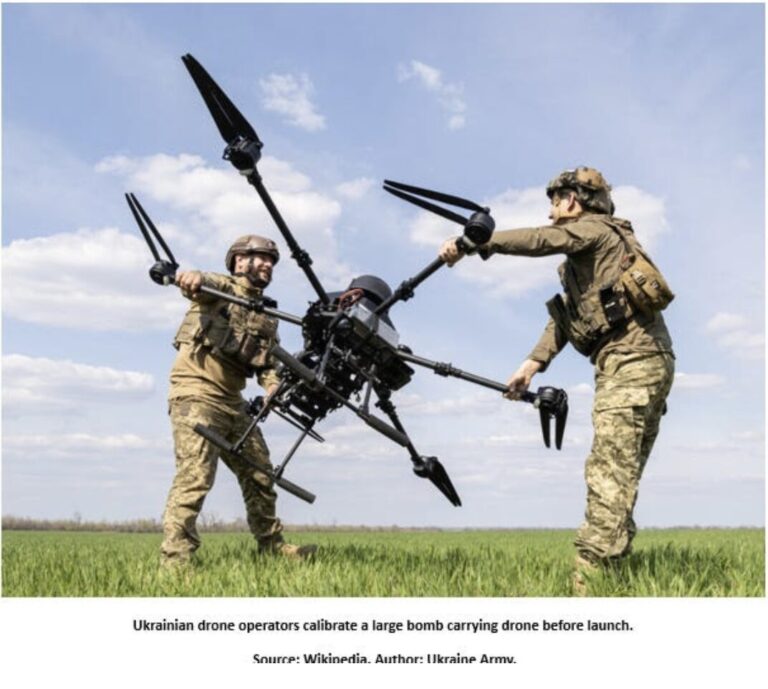A Superb Example of Quality Teaching
We’ve heard plenty from the Minister of Education, and from her influencers such as Dr Michael Johnston and Professor Elizabeth Rata, about the need to return to a teacher dominated knowledge based curriculum. Rata in particular has been very vocal about what she has termed ‘the Learning Approach and the unholy alliance it has with decolonisation that has led to the decline in our once first-class education system.”
As we know she has a very 19th view of education, based, I suspect, on the traditional English secondary school model, still used by a number of significant and vocal schools in New Zealand such as Auckland Grammar. It may not be a coincidence that Auckland Grammar teachers were involved in the development of the senior English curriculum discussed in my previous article.
While Stanford, the New Zealand Initiative, and their overseas gurus are hammering away at recolonising the New Zealand schooling system, real teaching continues.
Recently a wonderful description of a senior secondary school learning experience was posted on X by allimsayingis @hellomotorbike
Achieving such a wonderful learning experience requires superb mastery and commitment, both in in his classroom management skills, and especially the preparation of the learning experiences. This level of success doesn’t come from waving a magic wand or by standing in front of the class barking instructions. The gulf between this and the didactic teacher dominated ‘knowledge curriculum’ is light years wide. Establishing a classroom learning environment as he describes is not a matter of just setting expectations – it takes great skill in establishing routines and expectations, and in building mutually respective personal relationships.
This is totally lost on the New Zealand Initiative who believe that unqualified people are able to teach. In fact I will go further and say that one of the major issues in New Zealand schooling is that too many people behind the scenes have no teaching knowledge or experience, or that they do not seek input and advice from people who do have relevant teaching experience – that professional capture ideology again.
Stanford and the others keep pushing the need for a knowledge based curriculum, whatever that is, which implies that they think the current curriculum doesn’t have a knowledge component. I can tell you that this teacher in his planning had set expectations for what he wanted his students to learn and that he planned the learning activities accordingly.
The big difference, I believe, is that the knowledge curriculum people believe in direct instruction of knowledge, as opposed to the approach used here, which provided a rich range of learning experiences to enable the students to build their own knowledge – this is a very well known and extensively researched pedagogy called ‘Constructionism’.
This approach works on the belief that all learners (including you!) learn by forming connections between existing knowledge and new learnings, resulting in a ‘knowledge tree’. You’ll know this very well – when you try to learn about something that is way outside of your existing knowledge it doesn’t make sense to you.
A skilled teaching programme provides planned steps of learning experiences to enable this knowledge tree to develop with understanding – that is the crucial word. It is easily possible, as I’m sure you will know from your school days, to rote learn something that doesn’t make a great deal of sense to you, so that this can be regurgitated in an examination to prove you learned it. The day after the examination most of it has been forgotten.
The second string to this approach is based on the fact that learning through experiencing something is vastly more effective than learning through hearing or seeing it. Again this runs counter to Rata’s teacher dominated instructional learning philosophies.
Right, let’s read the learning description posted on X:
At the end of a significant two and a half terms of Year 13 Classics, learning about Roman culture, history, and influences on later cultures students had produced 2 substantial, approximately 4K word pieces. To celebrate and prepare ourselves for exam prep we organised a Roman feast
The students read up on formats, recipes, and common and gourmet food from the classical period. They selected a wide range of recipes from Posca (Gatorade for Gladiators) through appetisers and mains to desserts.
I brought my charcoal grill from home and we booked the school’s food tech room for lunch and last spell. We organised a delivery of ingredients, some paid for by me, some from school budget, and some from the students own pantries.
From there it was a whirlwind. Students with catering and food tech skills really took the lead and students challenged themselves to do things they hadn’t done before. One duo chose roast duck and prepared it to surviving recipe originally for flamingo.
Another created Parthian Chicken, including spices that his Indian family use today.
We had street food like marinated beef and date skewers cooked over charcoal and pickled pork belly strips. The smell of these cooking was divine.
Two Filipino girls found a recipe that reminded them of a flan their mothers make so chose this. It was delicate and challenging to make but delicious.
My contribution, a Pork and Apple stew, made with roast pork shoulder and meatballs, from @TastingHistory1‘s YouTube channel, was popular amongst legionaries on Hadrian’s Wall
The table groaned with all the food we prepared and with a message of encouragement to the kids as they look forward to their exams and a short prayers of gratitude for what we already have, we tucked in.
Every student had to explain their dish, what it is and where it comes from in Roman history, as plates and dishes were passed around from classmate to classmate and the kids congratulated each other on their creations, even the ricotta fritters that didn’t quite work.
The kids then realized that we had WAY too much kai, so began walking around the school to find off duty teachers and brought them to the table, again explaining every dish to them and making suggestions. It was a delight.
My point is that the vast majority of teachers care more for our students than politicians ever could. We are not greedy or callous. We care deeply and put in the work to drive learning and achievement with the kids.
What we will never settle for is the further dismantling of education by people who think landlord tax cuts are a more valid tax spend than retaining and recruiting teachers. We will not stand for effective paycuts nor what they represent, the undermining of our profession
To all the parents out there, we regret being put in this position by the Govt. If you feel compelled, please email your local National MP and express your dismay and disgust at their party’s statements about teachers. Help us get back to Muldoon era comparative pay rates.







education and intelligence are not the same. someone can work their hardest and produce top grades, to a point. someone else can be off the scale but have no work ethic. so how do we get the latter into their potential, and the former to accept their shortcomings?
oh FFS – I just looked up Dr Rata. Born in 1952. a literal dinosaur.
Yet an expert in knowledge rich curriculum or some international renowned.
The Classics teacher’s successful learning experience with the Roman feast happened after the students had already acquired a significant amount of knowledge. This is a critical point that the proponent of the blog post misunderstands.
It is not an either/or situation between direct instruction and experiential learning. The most effective educational approach is a progression. As students move from novice to expert, the most effective methods change. This is known as the expertise reversal effect.
For a novice, explicit, direct instruction is crucial for building a strong foundation of knowledge. Without this, experiential learning can lead to cognitive overload and the formation of misconceptions. Only once that foundation is in place can students effectively engage in complex, creative tasks.
You’re also confusing a 19th-century behaviorist view of learning, which is indeed a 19th-century view, with the modern, cognitive science-based understanding of direct instruction. The latter is a nuanced and powerful tool for building the knowledge that allows for the very kind of deep, meaningful experiences you praise.
Yes, it’s not about the cooking. It’s about getting to the point where the cooking could take place, so it is a progression. It was partly reward for hard work already done and partly another learning experience. The children drew on experience gained at home or elsewhere, for basic cookery skills. They weren’t being taught that on this occasion.
This was research and development.
You have to trust children to get on and do things. To practice the process. Just having them sitting safely at their desks memorising things won’t educate them enough. They can’t memorise everything. They need to know how to find what they don’t know, sift out the dross and draw useful conclusions.
Everything goes along in steps, each one expecting more of the learner until they pass an exam or achieve whatever the goal is.
At the same time children are growing up and becoming individuals. They have a lot more respect for a teacher who is willing to bend a bit than they do for rigid, text-book based situations. If quiet study suits them, that’s fine. If they are more adventurous and respond better to a bit of a challenge or new situations, that is learning too. Those sorts of children are in all classrooms and need to be taught as well.
I thought the reward aspect was important too. Certificates and bursaries are all very important but DOING something satisfying and productive is much more fun, and they were still learning.
I think there is a misconception here. Direct Instruction and Knowledge Rich curriculums are not about rote memorisation and passive learning. Although it can be very rigid as you imply, its about using the most effective methods for everyone. Its based on the fact that, when it comes to learning, students are more similar than different.
Sifting through the dross is not a skill you can teach, it is about solid background knowledge. It actually may be possible to memorise everything, recall is the issue.
Students may be more similar than different but there are so many that are very different, that every day, concessions and adaptations need to be made to ensure all those children get something out of a day at school.
When I say ‘dross’ I mean they can find information in many places. The first lesson to learn is not to limit themselves to the internet which varies in quality and is what everyone thinks of first. Cast the net widely.
Many people have made the point that not only are children all a bit different, also they learn differently. Roughly speaking they may learn by listening, watching, reading and doing. All possible methods need to be used so that everyone has a glimmer of what’s being taught.
Having clear goals or targets helps children to become more independent. We all do better when we know what’s expected or what we need to achieve.
Getting back to the children in the article about the Roman Feast. They had already done the hard work produced their results. For those who ask where’s the evidence of numeracy and literacy? That’s it. Done, finished. The feast was an extra which made the whole course make sense. It may also have sparked some thinking about future careers or directions, and highly paid jobs which some people feel is the main purpose in life.
Some children might have said, damn this rubbish, I’m off to do an engineering degree, only to have their highly paid job disappear when the govt. of the day, largely run by amateurs, decides to stop all new national infrastructure projects.
Nothing is certain. What looks like a lucrative direction can easily disappear. Just as well to have other interests and wide-ranging skills to fall back on.
Allan,
I think you’re missing a key point about the Roman feast project. The teacher’s success didn’t come from just doing a fun activity; it happened because the students already had a solid foundation of knowledge.
It’s not about choosing between direct instruction and hands-on learning. The best approach is a progression. As students go from beginners to experts, the most effective teaching methods change. This is a concept known as the expertise reversal effect.
For a beginner, explicit, direct instruction is essential. Without it, hands-on activities can be overwhelming and lead to misunderstandings. Once that base knowledge is in place, students can then tackle more complex, creative tasks.
You’re also confusing a 19th-century behaviorist view of learning with the modern, cognitive science-based understanding of direct instruction. The latter is a nuanced and powerful tool for building the knowledge that makes deep, meaningful experiences like the Roman feast possible.
No I didn’t miss the point. The feast project described was the culmination of the learning, where it was made real by the activities and the requirements to explain each dish and how it fitted into their studies if classical Rome. You’ve actually described a constructivist learning sequence where the students were able to build their knowledge as their experiences developed. The feast was the outcome and provided a very valid assessment where they could demonstrate their learnings, I don’t disagree with much of what you wrote and I have never said there is no place for direct instruction – how else would you learn to drive car? But even then, there comes a time when the learning has to be put into practice.
I’m no great shakes at cooking but I have to say that anything involving children preparing food especially with the background work required to get it authentic, is fantastically valuable in the classroom. It’s extremely hard to prepare for and carry out, lots of work for the teachers and the children, then all the cleaning up, but what results! Amazing results.
To do something fairly simple at the start of the year, sets a class up for the whole year. Children’s behaviour and attitudes improve immensely and immediately, when faced with having to produce something edible. Being up against others doing the same, the responsibility required, the nitty gritty of collecting equipment and ingredients, the time required and having to monitor the cooking process, eating the food and finding out if their efforts were successful, judging what they’d done and comparing results with others, coming to conclusions about what they’d do differently next time. The opportunities to learn a wide range of skills and ideas is incredible.
The simplest thing I ever did was to make butter in the classroom. Armed with cream, salt and a loaves of bread, some knives, an egg-beater and bowl, it was engrossing for every single child.
I had a proper butter churn with paddles fixed inside the lid and a handle to turn which I could show them. But I didn’t have enough cream for that to work on the day, so they had to imagine that working. However, after watching the cream turn to butter in a bowl, they could.
They had turns at beating the cream and were suitably impressed by the speed with which it thickened, and realised you need to be careful if you just want whipped cream.
I found the boys who often played up were also the most enthused. They were practical guys and it was just another easy practical thing for them. The girls who’d not started learning to cook at home were all fingers and thumbs. They might have had beautiful school books and been good at maths, but they couldn’t handle an egg-beater. They might get messy too, yuk! We had butter pats and they were thrilled with the small butter balls we made.
They buttered their own slices of bread and savoured the taste of plain old bread and butter.
Later in the year with an older group we cooked savoury mince over open fires. Small groups of friends working together. No-one complained about collecting sticks, or slicing carrots, they shared and waited patiently and took great care with the knives and fires. Teachers took some frozen peas around and before we knew it everyone had their own lunch. They’d all had to bring quite a lot for that exercise and no-one failed.
They had learned to prepare well, but in some cases, learnt to make do. They’d learnt to be patient and helpful. Again, the girls with their lovely spelling had to adapt a bit but they could advise the boys on how much salt to use. The boys could help the girls to get their fires going better if needed. The recipe was noted and written down, the amounts of ingredients, the timing, the sharing of cleaning up, all part of the day.
I’m sure there were a few singed fingers but no-one complained or made hard work of it. There might have been some mums who wondered if they’d ever get their pots clean, but again, no-one complained.
This is learning for life, just as much as times tables, which they all became proficient at that year, too.
These experiences were in the days before school camps became a thing. How many kids of 8 or 9 can cater for themselves, even now?
An old teacher acquaintance of mine was once seconded to the Ministry of education. His most polite statement about the experience was that he “had to get used to their way of working.” That was in a public speech. Give him a few drinks and it all came out about bureaucracy, incompetence in some cases, and lack of knowledge about actual education. Or at least lack of knowledge about teaching. I sort of wonder how many of them have actual qualifications in education. I suspect there qualifications are more in bureaucracy.
I ,from experience ,find todays students way more switched on than we were under the system that Stanford and Rata want to impose on our kids now .I also know a former dean from Auckland grammer who found out the hard way that their system of spoon feeding students so they pass exams and make the school look like its the best school around .He told me of a letter he received from Auckland uni pointing out how their high achiever students were unable to do basic research once they were thrust into the real world of real study .His investigations concluded that the Stanford system was what had failed his students who had great pass marks but those passes did not help in the real world .When he became head at our local college he adapted to the hands on experience system of learning and found it way more rewarding for teacher and student with much better engagement and students were seen challenging teachers .
We’ll just have to take your word for that won’t we. But there are facts that you can go and check. Michaela in London, KIPP and Success Academy in the US, check out the numbers they send to higher education.
They might send them but do they achieve at the highest level .
The numbers for that aren’t as readily available. There is some data available for KIPPshowing they have higher completion rates than non KIPP schools.
There is also project follow through which has data on this.
100% Gordon – rote learning and regurgitating facts, that are now at your fingertips, ‘”to achieve numbers” is pointless. Manual skills and being able to barter those skills will be more important than ever in coming years. Whilst there will always be a place for hands-on “Professionals” in Medicine, and Engineering – the rest is fairly arbitrary and open to replacement by automation and machine learning.
Apparently research shows that it takes these people about a year to catch up because of the spoon feeding they had at high school. After that they’re pretty much okay, but it does seem a waste of a year.